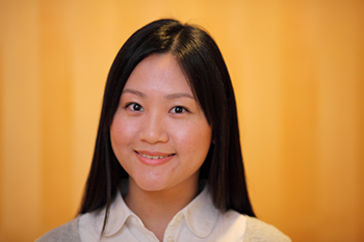PhD Student in Environmental and Water Resources Engineering at Department of Environmental and Water Resources Engineering, Nanyang Technological University, Singapore
Research focus: optimisation of an anaerobic co-digestion process of brown water and food waste for clean energy recovery
Jun Wei’s research is especially remarkable in that her project foresees the diversion and separate treatment of waste and wastewater in each household, instead of adopting conventional, centralised urban water treatment systems. Through a low-flush and no-mix toilet, fresh water used for flushing can be significantly reduced. As urine (yellow water) and faeces (brown water) differ substantially in their composition of nutrients, treating them separately allows maximum nutrients and energy recovery from the respective wastes. This concept of treating waste and wastewater locally greatly decreases the dependency on fresh water. Jun Wei’s work on decentralised and anaerobic treatment of domestic wastewater provides a major contribution to the development of sustainable cities in the future.
CV as submitted for the Green Talents award (2013):
Department of Environmental and Water Resources Engineering, Nanyang Technological University, Singapore
Research focus: optimisation of an anaerobic co-digestion process of brown water and food waste for clean energy recovery
After earning a Bachelor’s Degree in Chemistry and Biological Chemistry at the Nanyang Technological University, Jun Wei Lim went on to study Environmental Engineering with a focus on Sustainable Energy. During the course of her doctoral studies, Lim attended numerous international conferences and earned various awards for her work in energy recovery through anaerobic digestion. Lim plans to continue with her post doctoral studies in creating sustainable households with the ability to treat domestic waste and recover energy from the treatment process for domestic consumption.
With an ever-growing global population, the management of finite resources becomes increasingly challenging. With proper treatment, energy can be harnessed from waste. Given the massive demand for energy worldwide, the potential to effectively convert waste to energy should be maximised through research.
Lim’s research is especially remarkable in that her project foresees the diversion and separate treatment of waste and wastewater in each household, instead of adopting conventional, centralised urban water treatment systems. Through a low-flush and no-mix toilet, fresh water used for flushing can be significantly reduced. As urine (yellow water) and faeces (brown water) differ substantially in their composition of nutrients, treating them separately allows maximum nutrients and energy recovery from the respective wastes. This concept of treating waste and wastewater locally greatly decreases the dependency on fresh water.
Lim’s work on decentralised and anaerobic treatment of domestic wastewater provides major contribution to the development of sustainable cities in the future. Furthermore, the jury emphasised the importance of the combination of sustainable waste management and clean energy recovery.






